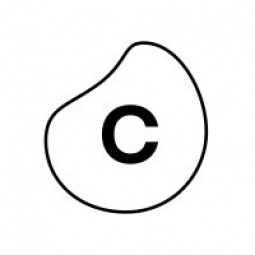Technology Category
- Sensors - Flow Meters
- Sensors - Liquid Detection Sensors
Applicable Industries
- Healthcare & Hospitals
- Life Sciences
Use Cases
- Inventory Management
- Real-Time Location System (RTLS)
About The Customer
GE Healthcare is a global leader in medical technology and digital solutions. The company takes a data-driven approach to innovation and efficiency, aiming to streamline its day-to-day operations and unlock working capital within a competitive market. With customers across the world and a distributed supply chain, GE Healthcare faces the challenge of maximizing performance across multiple transactional systems. The company is committed to continuous improvement at all levels, focusing on small, targeted changes and incremental growth to drive better outcomes.
The Challenge
GE Healthcare, a global leader in medical technology and digital solutions, was faced with the challenge of maximizing performance across its worldwide customer base and distributed supply chain. The company was dealing with multiple transactional systems, making it difficult to connect the dots and streamline operations. The goal was to increase free cash flow and drive a culture of cash excellence, but achieving this required continuous improvement across all levels of the organization. The challenge was to implement small, targeted changes and incremental growth, rather than top-down mandates, to improve forecasting accuracy and prevent incorrect payments in Accounts Payable.
The Solution
GE Healthcare turned to Celonis Execution Management System (EMS) to drive better outcomes. The company adopted a strategy of making small, targeted changes and promoting incremental growth. This included implementing weekly reviews of finance estimates versus actuals in disbursement. These seemingly minor adjustments led to major breakthroughs, improving forecasting accuracy and preventing about one thousand incorrect payments in Accounts Payable every week. The company also focused on clear goal-setting, defining desired outputs to foster collective engagement across all departments and divisions. Furthermore, GE Healthcare moved away from viewing data-driven changes as one-off initiatives, instead integrating the evaluation and implementation of objective insights and improvement opportunities generated by Celonis into their daily work.
Operational Impact
Quantitative Benefit

Case Study missing?
Start adding your own!
Register with your work email and create a new case study profile for your business.
Related Case Studies.

Case Study
Hospital Inventory Management
The hospital supply chain team is responsible for ensuring that the right medical supplies are readily available to clinicians when and where needed, and to do so in the most efficient manner possible. However, many of the systems and processes in use at the cancer center for supply chain management were not best suited to support these goals. Barcoding technology, a commonly used method for inventory management of medical supplies, is labor intensive, time consuming, does not provide real-time visibility into inventory levels and can be prone to error. Consequently, the lack of accurate and real-time visibility into inventory levels across multiple supply rooms in multiple hospital facilities creates additional inefficiency in the system causing over-ordering, hoarding, and wasted supplies. Other sources of waste and cost were also identified as candidates for improvement. Existing systems and processes did not provide adequate security for high-cost inventory within the hospital, which was another driver of cost. A lack of visibility into expiration dates for supplies resulted in supplies being wasted due to past expiry dates. Storage of supplies was also a key consideration given the location of the cancer center’s facilities in a dense urban setting, where space is always at a premium. In order to address the challenges outlined above, the hospital sought a solution that would provide real-time inventory information with high levels of accuracy, reduce the level of manual effort required and enable data driven decision making to ensure that the right supplies were readily available to clinicians in the right location at the right time.

Case Study
Gas Pipeline Monitoring System for Hospitals
This system integrator focuses on providing centralized gas pipeline monitoring systems for hospitals. The service they provide makes it possible for hospitals to reduce both maintenance and labor costs. Since hospitals may not have an existing network suitable for this type of system, GPRS communication provides an easy and ready-to-use solution for remote, distributed monitoring systems System Requirements - GPRS communication - Seamless connection with SCADA software - Simple, front-end control capability - Expandable I/O channels - Combine AI, DI, and DO channels

Case Study
Driving Digital Transformations for Vitro Diagnostic Medical Devices
Diagnostic devices play a vital role in helping to improve healthcare delivery. In fact, an estimated 60 percent of the world’s medical decisions are made with support from in vitrodiagnostics (IVD) solutions, such as those provided by Roche Diagnostics, an industry leader. As the demand for medical diagnostic services grows rapidly in hospitals and clinics across China, so does the market for IVD solutions. In addition, the typically high cost of these diagnostic devices means that comprehensive post-sales services are needed. Wanteed to improve three portions of thr IVD:1. Remotely monitor and manage IVD devices as fixed assets.2. Optimizing device availability with predictive maintenance.3. Recommending the best IVD solution for a customer’s needs.

Case Study
HaemoCloud Global Blood Management System
1) Deliver a connected digital product system to protect and increase the differentiated value of Haemonetics blood and plasma solutions. 2) Improve patient outcomes by increasing the efficiency of blood supply flows. 3) Navigate and satisfy a complex web of global regulatory compliance requirements. 4) Reduce costly and labor-intensive maintenance procedures.

Case Study
Cloud-based healthcare solution for Royal Philips
Royal Philips wanted to launch its cloud-based healthcare solution HealthSuite Digital Platform in China to deliver services to help cope with challenges related to urbanization and population growth. Philips wanted to achieve this goal by combining mobile, cloud computing and big data technologies. To bring this platform and product to market, Philips required cloud computing and local technical service capabilities in China, in addition to a flexible IT infrastructure that could handle user requests.








